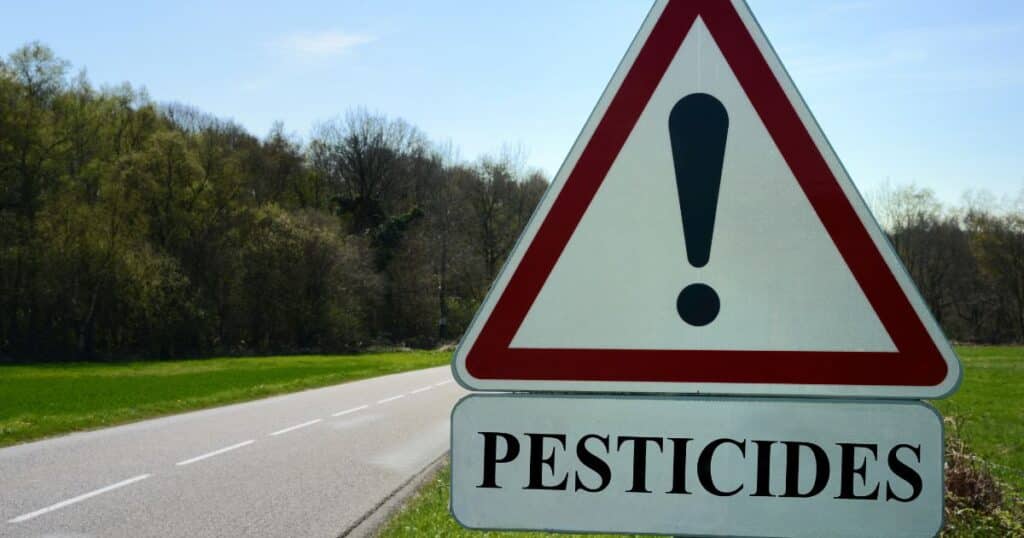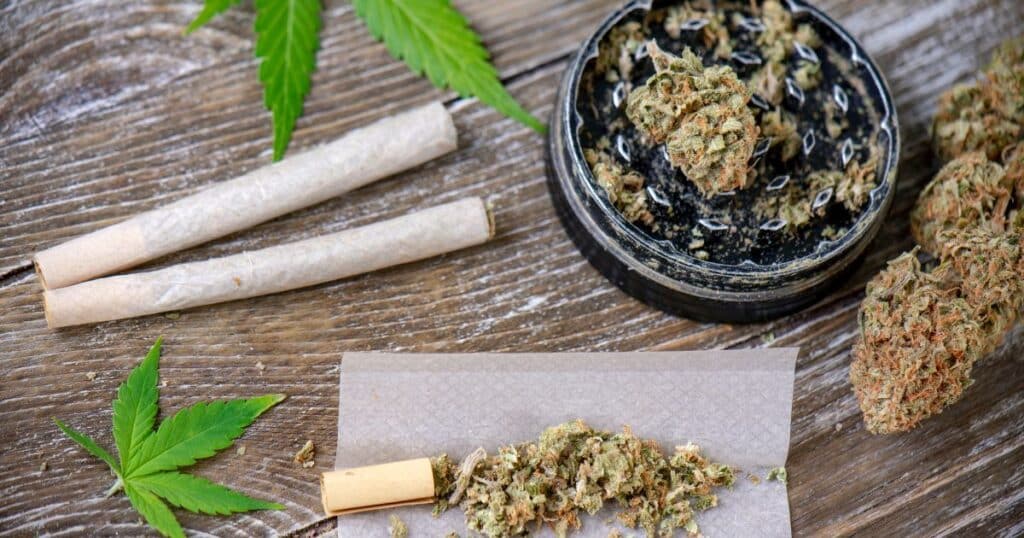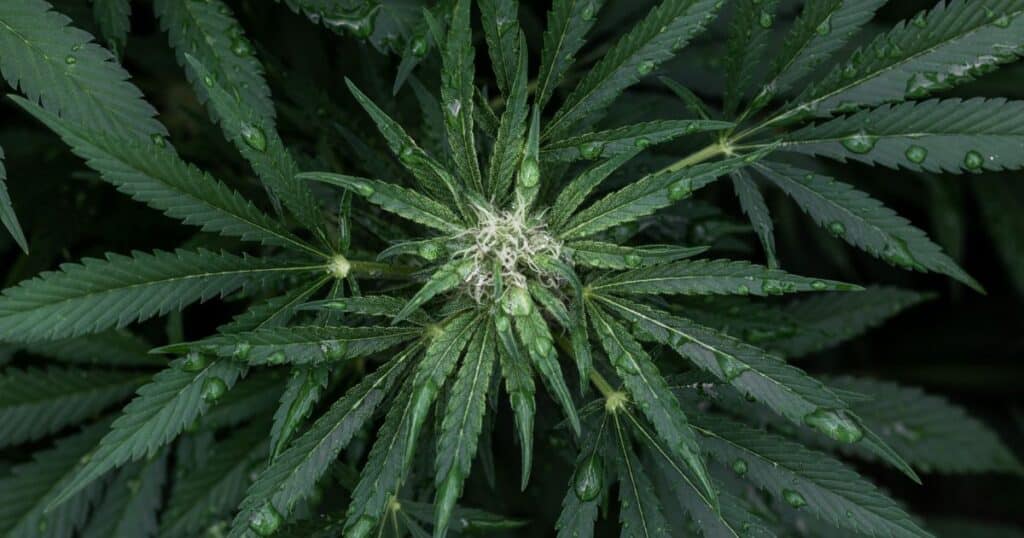A recent cannabis study from Canada published in the Journal of Cannabis Research showed that 92% of illegal cannabis samples contain pesticides. This is an alarming statistic, considering most people don’t realize the potential health risks associated with consuming contaminated products. The data collected in this study provides valuable insight into the importance of licensing and industry standards for legal marijuana production and how it can help protect consumers.

This study was conducted using samples from both legal and illicit cannabis products. The results demonstrate the stark contrast between licensed and illegal samples in terms of safety and contamination levels, highlighting the need for responsible regulation of marijuana production. Unregulated black-market operators are skirting industry standards, which can create dangerous health risks for consumers who purchase their products.
The findings of this study provide a compelling argument for why it is essential to have reliable licenses and industry standards for marijuana production. Not only does this protect the consumer, but it also ensures that cannabis is grown and packaged safely in order to prevent contamination or other health risks.
Findings On Illegal Cannabis Samples
The study conducted in Canada examined the contamination of illegal cannabis samples. While only a limited number of samples were tested, the results showed that “Canadian illicit cannabis inflorescence samples analysed showed a striking contrast with a 92% sample positivity rate covering 23 unique pesticide active ingredients with 3.7 different pesticides identified on average per sample. Chlorpyrifos, imidacloprid, and myclobutanil were measured in illicit samples at concentrations up to three orders of magnitude above the method LCL of 0.01 μg/g.”
The study found that “Four pesticides and synergists, myclobutanil, paclobutrazol, piperonyl butoxide, and pyrethrins, were detected at a high sample frequency rate, 8 to 17 times in a total of 24 illicit samples. One illicit sample alone contained nine different pesticide active ingredients. Illicit cannabis contained on average 3.7 different pesticides per sample, and 87% of positive samples contained more than one different pesticide.”
This means that most illegal cannabis samples tested positive for pesticides, with many containing contamination levels three times higher than what is considered safe.
“The 24 illicit cannabis samples were obtained from seizures by law enforcement officers across the country and submitted to Health Canada for laboratory testing in 2021.”
Findings on Legal Samples
The study also examined 36 legal cannabis samples across all five Canadian regions (British Columbia, Prairies, Ontario, Quebec, and Atlantic). The results showed that compared to the illegal samples, only 6% of the legal samples tested positive for pesticides, and only two different pesticides were detected, dichlobenil and myclobutanil.
The study tested for a total of 327 pesticides, which makes this low detection rate encouraging for consumers.
The study found that licensed cannabis samples were much less likely to contain pesticides than illicit samples. This highlights the importance of knowing where your medicine comes from and the importance of verifying certifications of analysis when purchasing products. It also demonstrates one of the many advantages of licensing and industry standards for marijuana production- consumer safety.
How Important is Testing?
The findings of this study demonstrate the importance of licensing and industry standards for legal marijuana production. The results show that while legal cannabis samples were much less likely to contain pesticides, the illegal product seized by law enforcement had multiple active ingredients at concentrations up to three times higher than what is considered safe.
This is concerning, as consuming contaminated products can cause serious health risks. This is why it is essential to know where your cannabis comes from and what’s been used on it.
The study also shows how far lab testing in the cannabis industry has come. The ability to detect 327 different pesticides is an impressive feat, and it demonstrates the importance of reliable laboratory testing when using cannabis products. These tests allow us to verify product quality and ensure that what we consume is safe and free from contaminants.

It’s important to remember that this study’s findings only reflect a small sample size. However, they can still be used to make an argument for why responsible regulation of marijuana production is necessary. By having reliable licenses and industry standards, we can help ensure that cannabis products are safe and free from contamination. This will ultimately benefit both consumers and the entire industry in the long run.
This isn’t the first time cannabis and pesticides have been connected. In fact, back in 2019, the nonprofit organization Beyond Pesticides urged supporters to contact their congressional representatives with a letter calling for federal regulations on pesticides used in marijuana to promote public health and safety.
One other example was in 2021, the Oregon Liquor Control Commission found cannabis flower and extract products that initially failed pesticide testing (for the analyte Abamectin) with a subcontracted laboratory, but the primary lab – Ecotest – marked that it passed testing in March 2020. which then resulted in the OLCC formally canceling Ecotest’s license.
The findings of this study highlight the importance of testing, reliable licensing, and industry standards in ensuring that marijuana products are safe and free from contamination. Most samples tested showed varying levels of pesticides, indicating that consumers should be aware when purchasing illicit cannabis- you never really know what’s contained in it.
Since many people use marijuana as a medicine, the product they are consuming must be of the highest quality and free from potentially hazardous ingredients. This study goes to show just how important it is for cannabis products to be adequately tested and regulated in order to ensure safety for consumers.
Keep updated on all the latest news and updates in the Cannabis industry here at Beard Bros Pharms by signing for our Friday Sesh Newsletter here. Always Dank and Never Spam!






















